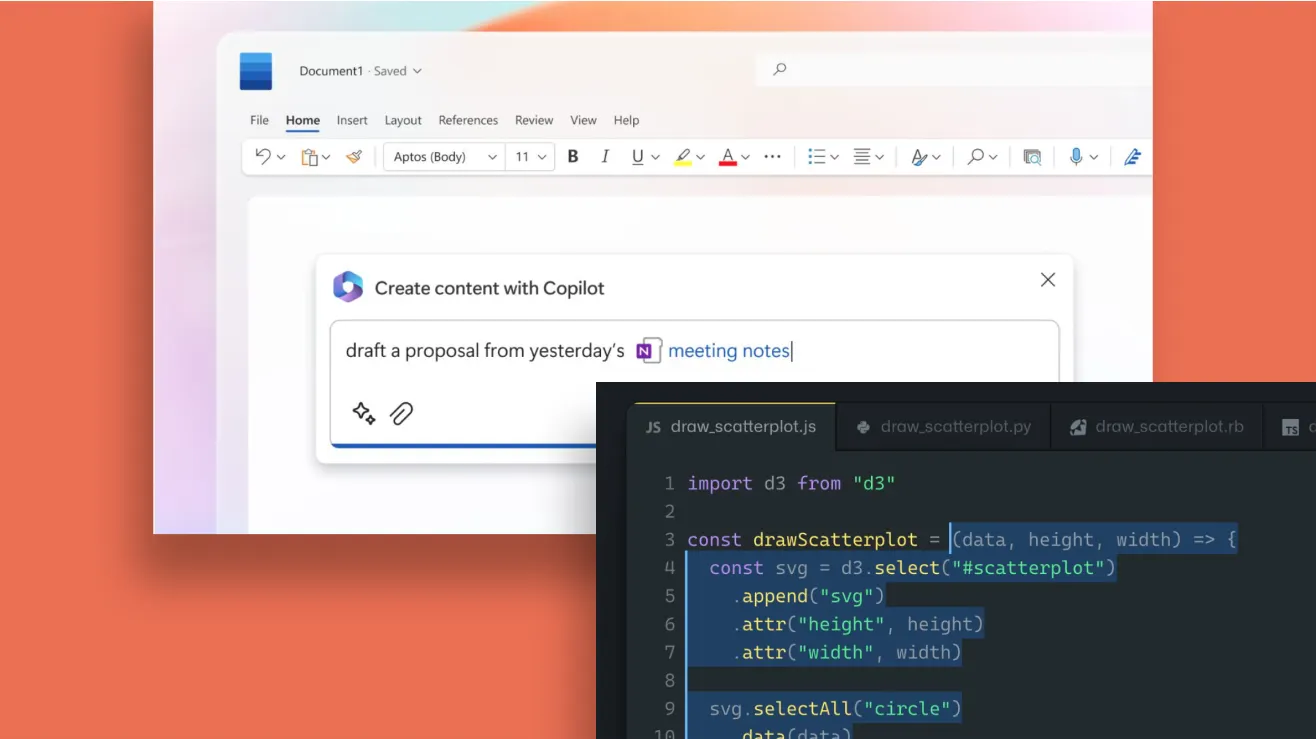In today's rapidly evolving market, making strategic decisions about Generative AI (GenAI) and Large Language Models (LLM) could be crucial for the future success of your enterprise. But it’s important to keep a cool head – and think strategically about GenAI.
In this article, we’ll explore the importance of getting the right strategy for enterprise GenAI, and choosing the best GenAI technology options for your specific use case – as discussed in our new GenAI whitepaper.
Highlighting the importance of enterprise GenAI strategy
Leading organisations are increasingly formalising their GenAI strategy with the creation of a new board-level role – for example, UK broadcaster ITV has appointed a Chief Data and AI Officer to highlight the central importance of AI to its future plans in taking on global streaming rivals.
In another example, a major telecoms company in the Asia-Pacific region has also appointed a Chief Data and AI Officer to develop its strategic vision for AI, and implement a roadmap for AI use cases. As an initial result, the company has developed a Generative AI tool to help dispatchers and service operators better predict the types of calls and parts needed when servicing homes.
Generative AI and LLMs could change how humans interact with data, systems
and companies
Why do you need an enterprise strategy for Generative AI?
Integrating Generative AI and LLMs into your enterprise strategy unlocks numerous business opportunities and innovative product paradigms, essential for staying competitive. However, it’s not enough to simply adopt these technologies without a clear vision, roadmap, and governance framework. To unlock the true value and impact of GenAI, your organisation needs a strategic approach that considers the following aspects:
Business objectives: What are the specific goals and outcomes that you want to achieve with GenAI? How do they align with your overall business strategy and customer value proposition?
Data assets: What are the data sources and types that you have access to and can leverage for GenAI? How can you ensure the quality, security, and privacy of your data?
Technology infrastructure: What are the technical requirements and capabilities that you need to support Generative AI and LLMs? How can you ensure the scalability, reliability, and performance of your GenAI systems?
Ethical and regulatory compliance: What are the ethical and regulatory implications and risks of using Generative AI and LLMs? How can you ensure the accountability, transparency, and fairness of your GenAI systems?
Organisational culture and skills: What are the new ways of working that you need to foster and develop for GenAI? How can you ensure the required collaboration, innovation, and adoption of your GenAI systems?
By addressing these aspects, you can build a comprehensive and coherent enterprise strategy for Generative AI and LLMs that drives value for your business, your customers, and your stakeholders.
What are the benefits of building your own GenAI tools and agents?
One of the key benefits of Generative AI and LLMs is that they can be customised and tailored to your specific needs and use cases. By building your own GenAI tools and agents, you can leverage your proprietary data, domain knowledge, and business logic to create unique and differentiated GenAI solutions that give you a competitive edge and enhance your customer experience.
For example, you can build your own Generative AI tools with customised LLMs to generate high-quality content for your marketing campaigns, product descriptions, or customer service interactions. You can also build your own GenAI agents to automate complex workflows, such as underwriting, claims processing, or fraud detection. By doing so, you can increase your efficiency, accuracy, and productivity, as well as create new value propositions and revenue streams.
However, building your own GenAI tools and agents is not a trivial task. It requires significant investment in data, technology, and skills, as well as careful management of the risks and challenges involved. Therefore, you need to evaluate the trade-offs and benefits of building versus buying, and decide on the best course of action for your organisation.
Copilot utilises GPT-4 in its own offerings
Choosing the right LLMs from the available options
Another consideration for your GenAI strategy is that your technology options are increasing. The market offers a variety of Large Language Models tailored to different enterprise needs and strategic goals, enabling you to choose the perfect fit for your organization's objectives. Some of the most notable LLMs are:
GPT-4: The most well-known LLM is this latest and largest version from OpenAI, also used by part-owner Microsoft in its own Copilot GenAI offerings. With over 1 trillion parameters and impressive natural language fluency, reasoning ability, and multimodal capabilities, it can be used for content creation, chatbots, coding assistance, and more.
Gemini: A powerful generative model from Google, specialising in multimodal content creation, including text, code, and images. It excels at understanding complex prompts and generating outputs that are not only factually accurate but also creative and engaging.
Llama-2: Developed by Facebook’s parent company Meta, this is an advanced, open-source LLM known for its efficiency and scalability. Despite their smaller size, Llama models deliver exceptional performance on a variety of benchmarks including reasoning, coding, proficiency and knowledge tests.
Claude-3: A sophisticated GenAI model from Anthropic, focusing on conversational intelligence. It excels in understanding and responding to a wide range of conversational cues, maintaining context, and providing coherent, relevant responses in dialogues.
To choose the right LLMs from these options and other emerging models, you need to consider several factors, such as:
Type and format of data that you want to process and generate.
Level of accuracy, quality, and creativity that you expect from the outputs.
Cost and complexity of accessing and implementing the models.
Ethical and regulatory implications and risks of using the LLM.
By comparing and contrasting these factors, you can select the most suitable LLMs for your organisation and use cases.
Finding a partner to help you build and implement your GenAI strategy
At Elsewhen, we help business leaders harness a cutting-edge approach to design and technology, to deliver positive impact for their organisations. We have extensive experience and expertise in Generative AI and LLMs, and we can help you build and implement a better enterprise GenAI strategy that drives value for your business. We can assist you with:
Identifying and prioritising the opportunities and use cases for Generative AI and LLMs in your organisation.
Designing and developing bespoke solutions and products that leverage Generative AI and LLMs, as well as your proprietary data and domain knowledge.
Integrating and deploying your GenAI solutions and products in a scalable, reliable, and secure manner.
Managing and mitigating the ethical and regulatory risks and challenges of using GenAI.
Fostering and developing the organisational culture and skills for GenAI.
At Elsewhen we have extensive expertise in Generative AI and LLMs
To learn more about developing a robust Generative AI strategy for your enterprise, contact us at Elsewhen, and start transforming your business today.
You can also read our new GenAI whitepaper, in which we outline the emergence of generative AI and LLMs, highlight GenAI capabilities and product paradigms, and explore potential business impacts and best practices.
Download the whitepaper: Digital Transformation in the Era of Generative AI
